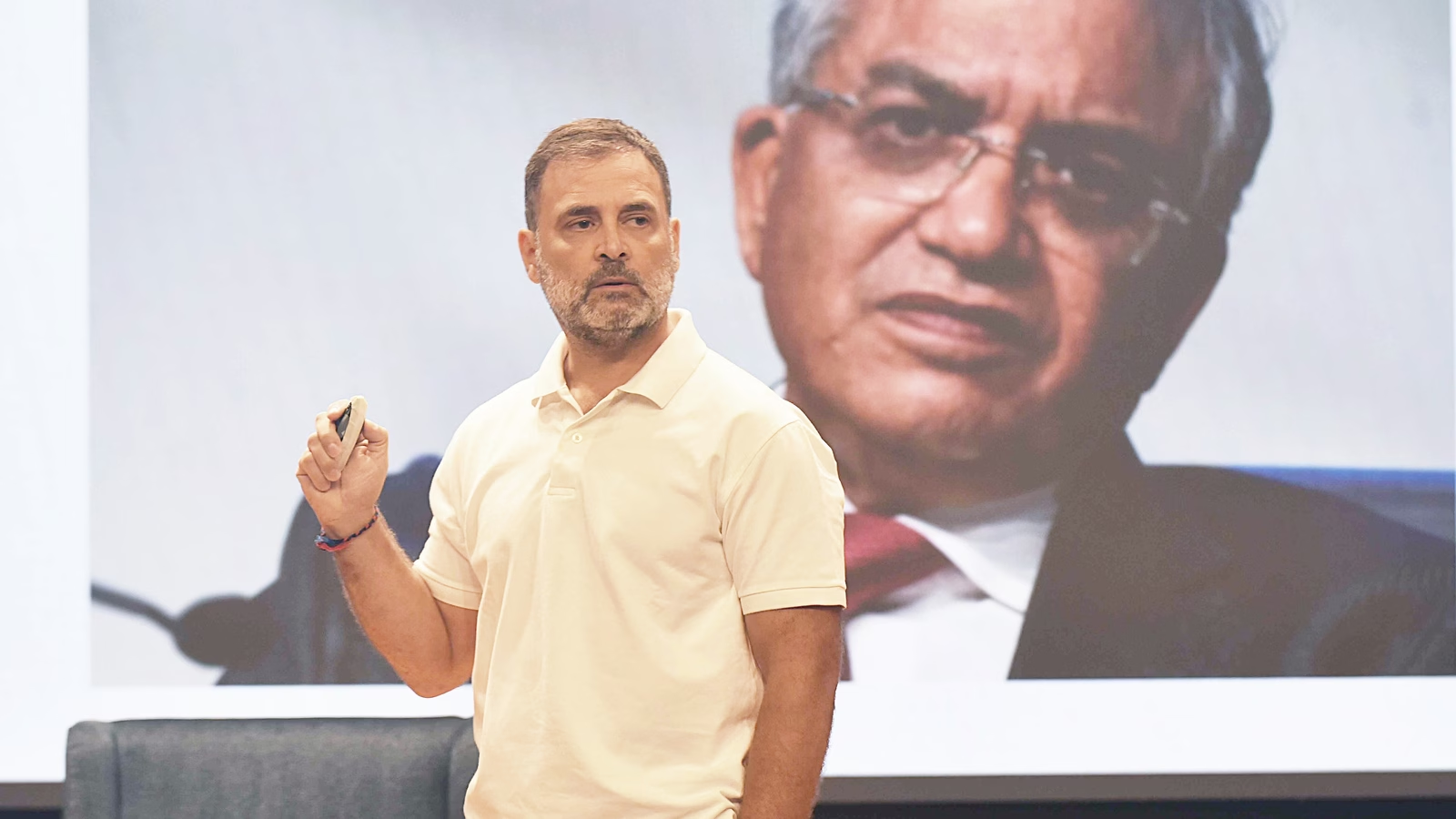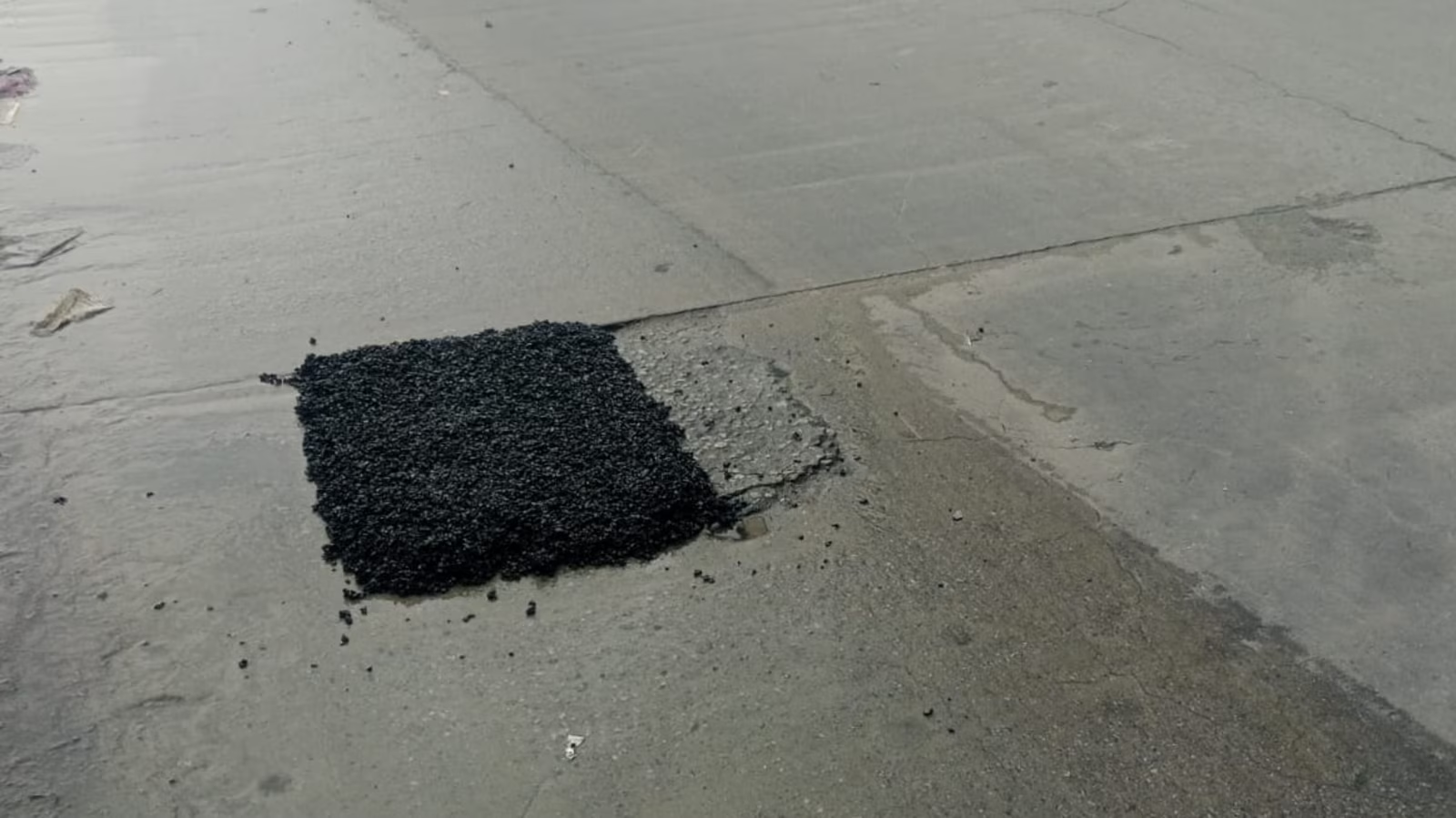Now Reading: Vote Chori Row: BJP Dismisses Rahul Gandhi’s Allegations as “What a Joke!”
-
01
Vote Chori Row: BJP Dismisses Rahul Gandhi’s Allegations as “What a Joke!”
Vote Chori Row: BJP Dismisses Rahul Gandhi’s Allegations as “What a Joke!”

India is seeing one of its sharpest political battles in recent times after Congress leader Rahul Gandhi accused Election Commission and BJP of manipulating electoral rolls—what he calls “vote chori” or vote theft. BJP has laughed off the charges, calling them baseless and politically motivated. The clash is stirring debates around credibility, institutional trust, and what this means for voters, especially in smaller towns where news spreads fast but verification is slow.
What Rahul Gandhi Is Claiming
Rahul Gandhi alleges that voter lists in constituencies like Aland (Karnataka) and Rajura (Maharashtra) have seen large-scale deletion and irregular additions. He says the Election Commission has failed to act on complaints. He points to specific numbers of supposedly bogus entries and deletions that he claims changed outcomes. He presents this not merely as a political argument but as a challenge to electoral fairness itself.
How BJP and Authorities Have Responded
BJP rejects the allegations outright, calling them “joke” and politically motivated attempts to undermine democratic institutions. Party leaders accuse Congress of trying to create instability, draw comparisons with political climates in Bangladesh and Nepal. The Election Commission has also fact-checked the claims and said they are misleading or false. Officials argue there is no proof that the suggested manipulations affected results in the way Rahul Gandhi claims.
Why This Matters for Tier-2 Cities
People in smaller cities often rely more on word-of-mouth or social media for political news. When high-profile allegations surface, they tend to spread quickly and create distrust. But verification and access to transparent data are usually weaker in these places. When institutions are accused of bias or malpractice without clear explanations, it deepens cynicism. Electoral roll accuracy affects every voter—if names are wrongly deleted or added, it could mean someone loses their chance to vote.
Challenges in Proving Such Allegations
Electoral processes in India involve massive data at many levels—voter registration, document verification, booth level oversight. Proving manipulation requires showing consistent irregularities, concrete evidence like logs or IP addresses, and following legal procedures. Rahul Gandhi has urged for affidavits, data release, and investigations. On the other side, critics say many allegations haven’t been backed up with verifiable evidence and some may stem from frustration at election losses rather than firm proof.
What Voters Should Keep in Mind
Always check whether an allegation has been substantiated by independent sources or by the Election Commission itself. Avoid assuming wrongdoing until detailed proof is presented. Engage with reliable news and local electoral officials—look for public notifications or clarifications. Also, know your rights: in many places there is scope to challenge electoral roll issues if documents are in order.
Conclusion
The “vote chori” controversy exposes wider fault lines in India’s democratic process: trust in institutions, transparency, and the power of political narratives. Whether or not Rahul Gandhi’s allegations hold up, voters—especially in Tier-2 and Tier-3 cities—feel the effects of doubt and suspicion. For democracy to work, claims of malpractice must be met with open investigation and clear communication. Until then, the row underscores how central electoral integrity is to political legitimacy.

























